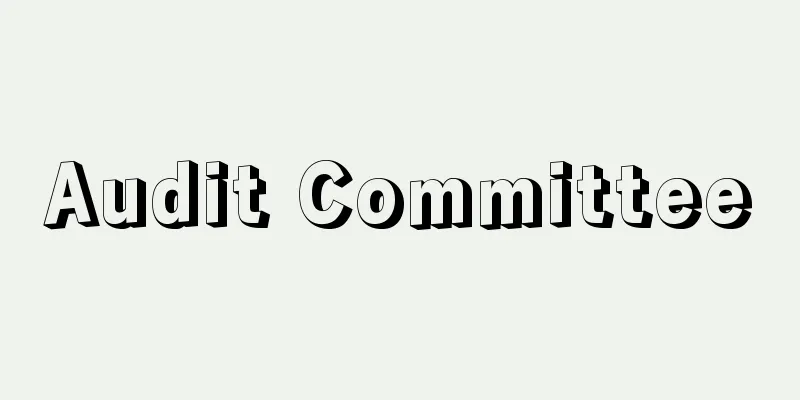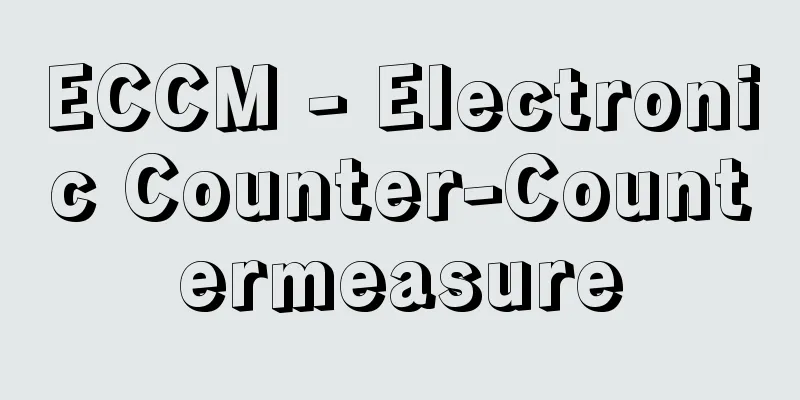Audit Committee

|
An organization that inspects the execution of duties by executive agencies. Its organization, duties, authority, etc. vary by law. Audit Commissioner of a local governmentLocal governments are required to have an auditing body (Article 195 of the Local Autonomy Law and Article 140-2 of the Enforcement Order of the Local Autonomy Law). It is similar to the Board of Audit of the country. The number of auditors is four for prefectures, cities and special wards with a population of 250,000 or more (at least one of the people selected from among those with knowledge must be full-time), and two for other cities, towns and villages (this number can be increased by ordinance). One of them is the representative auditing commissioner. The mayor selects the auditor from among those with excellent knowledge of financial management, business management, and other administrative management, and from among the assembly members, with the consent of the assembly. There are regulations prohibiting concurrent employment as a full-time employee of a local government, limiting the number of auditors to one who was an employee of a local government, prohibiting employment of those who are parents, children, spouses, or siblings of the mayor, vice governor, or vice mayor of a local government, and prohibiting auditing of certain cases involving a conflict of interest. The term of office is four years for those selected from among those with knowledge, and the term of office for those selected from among the assembly members is the same as that of the assembly members. Their status is guaranteed, and they may be dismissed with the consent of the assembly only when the chief judges that they are unable to perform their duties due to mental or physical disability, or that they have violated their duties or committed other misconduct that makes them unbecoming of an audit committee member. Their duties must be performed fairly and impartially, and they are also required to maintain confidentiality. When it is deemed necessary for an audit, they may request the appearance of relevant persons, investigate relevant persons, request the submission of books, documents, and other records from relevant persons, and may hear the opinions of persons with academic and practical experience. In principle, the scope of the audit is limited to the execution of financial affairs and the management of business related to the management of local government, rather than the general affairs of the local government, but when requested by the head of the local government or when the head himself deems it necessary, the audit may extend to the execution of general affairs (with some exceptions). This audit is conducted at least once every fiscal year, with particular attention paid to whether it is in line with the principle of economic rationality, which is to achieve maximum effect with minimum cost, and the purpose of organizational rationalization. In addition, local governments may, on their own initiative or at the request of the head of the local government, audit the accounts of organizations to which they give financial assistance such as subsidies, grants, contributions, loans, loss compensation, and interest subsidies, as well as organizations in which they have invested more than a quarter of the capital, organizations for which they guarantee the payment of principal or interest on loans, trustees of real estate trusts in which they hold beneficial interests, and designated managers of public facilities. The audit results shall be submitted to the mayor, assembly, and relevant committees after deliberation by the audit committee members, and made public. Furthermore, the audit committee members may submit their opinions along with the report on the audit results in order to contribute to the streamlining of organization and operations. When the mayor, assembly, or committee receives the report on the audit results and takes any measures, they shall report to the audit committee members. Audits must also be conducted when there is a request from a resident for an audit of administrative affairs (Article 75 of the Local Autonomy Law) or a citizen's request for an audit (Article 242 of the same law). [Yasuhito Abe] Audit committee members in a company with committee systemThis refers to a director who is a member of the audit committee of a company with a committee system. The 2002 amendment to the Commercial Code (Law No. 44 of 2002) introduced the committee system as one of the corporate organizational structures. This system is modeled after the American corporate organizational structure, and has three committees within the board of directors: a nomination committee, a compensation committee, and an audit committee, each of which is made up of directors. The majority of the members of these committees are outside directors, and they are responsible for supervising the company's business operations. The committee system was established with the aim of separating supervision and execution by placing executive officers as business execution bodies. In 2005, "Part 2 Companies," which stipulated companies in the Commercial Code, was made into a standalone law, and the Companies Act (Law No. 86 of 2005) was enacted. When the Companies Act was enacted, the character "etc." was removed from the term "committee system companies," and the name was changed to "committee system companies." In a company with committee system, the audit committee is primarily responsible for auditing the execution of duties by directors and executive officers, and the audit committee members are its members. No audit committee member may hold a position as an executive officer of the company or its subsidiaries. Compared to audits by auditors at companies other than those with a committee system, there are the following differences: (1) auditors are in reality considered to have a lower rank than directors within the company, making it difficult for them to audit directors, whereas the audit committee is made up of outside directors and can prevent laxity in audits that arise from a sense of hierarchy or camaraderie within the company; and (2) auditors cannot interfere in management decisions and can only audit the illegality of the performance of duties, and cannot audit the appropriateness of the performance of duties, whereas the audit committee is made up of directors and can audit the appropriateness of the performance of duties. [Takeda Norihiro] "Seiichi Ochiai, "Outline of the Company Law" (2010, Yuhikaku)" ▽ "Kenjiro Egashira, "Corporate Law" 4th Edition (2011, Yuhikaku)" ▽ "Hideki Kanda, "Legal Studies Lecture Series: Company Law" 15th Edition (2013, Kobundo)" [Reference] | |Source: Shogakukan Encyclopedia Nipponica About Encyclopedia Nipponica Information | Legend |
|
執行機関の職務執行状況を検査する機関。その組織・職務・権限等は法律により異なる。 地方公共団体の監査委員地方公共団体必置の監査機関(地方自治法195条以下、地方自治法施行令140条の2以下)。国における会計検査院に近い。その定数は、都道府県および人口25万人以上の市、特別区では4人(識見を有する者から選任された者のうち少なくとも1名は常勤)、その他の市町村では2人(条例で増加可能)である。そのうちの1人は代表監査委員となる。その選任は、長が、財務管理、事業の経営管理、その他行政運営に関し優れた識見を有する者および議員のうちから議会の同意を得て行う。地方公共団体の常勤職員との兼職禁止、地方公共団体の職員であった者は1名に限ること、地方公共団体の長・副知事・副市町村長と親子・夫婦または兄弟姉妹の関係にある者の就職禁止、一定の利害関係事件の監査禁止の定めがある。任期は、識見を有する者のうちから選任される者にあっては4年、議員のうちから選任された者は議員の任期による。その身分は保障され、長が、心身の故障のため職務の遂行に堪えないと認めるとき、または職務上の義務違反その他監査委員たるに適しない非行があると認めるときに限り、議会の同意を得て罷免することができる。その職務は公平不偏の態度で行わなければならず、守秘義務も課されている。監査のため必要があると認めるときは、関係人の出頭を求めること、関係人について調査すること、関係人に対し帳簿、書類その他の記録の提出を求めることができ、また学識経験を有する者等から意見を聴くことができる。 監査の対象は、原則的には、地方公共団体の事務全般ではなく、その財務に関する事務の執行およびその経営に係る事業の管理に限るが、首長からの要求があるとき、または自らさらに必要があると認めるときは、事務全般(若干の例外あり)の執行にも及ぶ。この監査は毎会計年度少なくとも1回以上行い、その際、最少の経費で最大の効果を上げるとの経済合理性の原則および組織の合理化の趣旨に添っているかどうかに、とくに意を用いる。 また、その地方公共団体が、補助金、交付金、負担金、貸付金、損失補償、利子補給などの財政的援助を与えている団体の出納などのうちその援助に係るもの、4分の1以上出資している団体、借入金の元金または利子の支払を保証している団体、受益権を有する不動産信託の受託者および公の施設の指定管理者についても、自らの発意または首長の要求により監査することができる。 監査結果は、監査委員の合議のうえ、首長、議会、関係のある各種委員会に提出し、公表する。さらに、監査委員は、組織および運営の合理化に資するため、この監査の結果に関する報告に添えてその意見を提出することができる。監査の結果に関する報告を受けた首長、議会、委員会は、措置を講じたときはその旨監査委員に報告する。 また、住民から事務監査請求(地方自治法75条)、住民監査請求(同242条)があったときも監査しなければならない。 [阿部泰隆] 委員会設置会社における監査委員委員会設置会社に置かれている監査委員会の構成員である取締役をさす。2002年(平成14)の商法改正(平成14年法律第44号)により、会社の機関構成の一つとして委員会等設置会社が導入された。これは、アメリカの会社の機関形態を模し、会社の取締役会内に、取締役を構成員とする指名委員会、報酬委員会、監査委員会の三つの委員会を置き、しかも、それら委員会の構成員の過半数を社外取締役として、会社の業務執行の監督を担わせようとする形態である。委員会等設置会社には業務執行機関として執行役を置き、監督と執行を分離することを目ざして創設された。その後、2005年には、商法のなかで会社について規定していた「第2編 会社」が単行法化され、会社法(平成17年法律第86号)が制定された。会社法制定時に、委員会等設置会社の「等」の字が抜け、委員会設置会社と改称された。 委員会設置会社において、おもに取締役、執行役の職務執行の監査を行うのが監査委員会であり、監査委員はその構成員である。監査委員は全員、会社および子会社の業務執行を行う者との兼任が許されない。 委員会設置会社以外の会社における監査役の監査と比べると、(1)監査役は現実には社内においては取締役よりも下の地位にいるとみられ、取締役に対する監査を行うことがむずかしいが、監査委員はその構成員が社外取締役であるため、社内の上下意識・仲間意識から生じる監査の緩みを防止することができる、(2)監査役は経営判断に口出しできないために職務執行の違法性についてしか監査できず妥当性までは監査できないが、監査委員は構成員が取締役であるので、職務執行の妥当性にまで監査を行うことができる、という違いがある。 [武田典浩] 『落合誠一著『会社法要説』(2010・有斐閣)』▽『江頭憲治郎著『株式会社法』第4版(2011・有斐閣)』▽『神田秀樹著『法律学講座双書 会社法』第15版(2013・弘文堂)』 [参照項目] | |出典 小学館 日本大百科全書(ニッポニカ)日本大百科全書(ニッポニカ)について 情報 | 凡例 |
<<: Kansai Student Baseball Federation - Kansai Student Baseball Federation
Recommend
Academy of Disegno - Academy of Disegno
…(4) Providing opportunities for member painters ...
Meganeura - Meganeura
Meganeura is also read as Meganeura. It is a foss...
Kanai Nobu - Kanai Nobu
Economist of the Meiji and Taisho eras. Born on F...
Christian drama
...Since ancient times, theater has been closely ...
Ergodic theorem
...According to this, the average in a statistica...
On the Principles of Political Economy and Taxation
This is the major work of D. Ricardo, the perfecto...
Totsuka
Wards and districts in the southwest of Yokohama ...
Aji [town] - Aji
A former town in Kida County, occupying the tip of...
Electric guitar
A guitar that uses electricity to amplify the soun...
Eophona migratoria (English spelling)
…[Nakamura Toru]. … *Some of the terminology that...
Copy theory - Moshasetsu
The idea that cognition is the process by which t...
Scarlet runner bean (Benihana Ingen) - Scarlet runner bean (English spelling)
Also known as the flower bean (illustration). A pe...
Newar
An ethnic group native to the central part of Nepa...
Vomiting center
...The contractile force (tension) of the muscle ...
On (Western Philosophy) - On
…Here, physis is considered to be a completely st...









